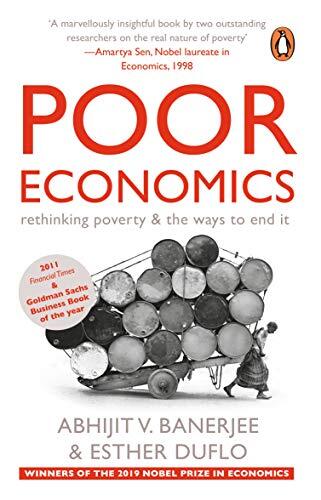
Poor Economics: Rethinking Poverty and the Ways to End it
Edition: Illustrated
Language: English
Format: Paperback
ISBN 10: 0785163913
ISBN 13: 9780785163916
Publication date:
March 19th, 2013
Publisher: Random House India
Pages: 464
Genres: Thriller & Suspense, Action & Adventure, Fantasy, Manga, Graphic Novels
In a thought-provoking exploration of poverty, two distinguished economists delve into the intricacies of economic disparity and the complex web of factors that perpetuate it. Their insights stem from extensive field research and a commitment to understanding the lives of the poor, shedding light on the everyday choices they face. With a pragmatic lens, they challenge traditional welfare approaches and uncover the nuanced realities that often go unnoticed.
The authors take readers on a journey through varied case studies across different regions, illustrating how small interventions can lead to significant impacts. By dissecting the assumptions surrounding poverty alleviation, they encourage a reevaluation of strategies that have, at times, missed the mark. The narrative emphasizes the importance of tailored solutions that address local conditions, rather than a one-size-fits-all mentality.
With a blend of empirical analysis and compelling storytelling, the book engages readers in critical conversations about innovation in poverty reduction efforts. It prompts a reevaluation of not just what has been tried, but why certain approaches succeed or fail in the real world.
Ultimately, this work serves as both an eye-opener and a call to action for policymakers, activists, and anyone invested in the future of global economic development. Through an accessible and engaging style, the authors inspire hope and provide a fresh perspective on a deeply entrenched challenge.
The authors take readers on a journey through varied case studies across different regions, illustrating how small interventions can lead to significant impacts. By dissecting the assumptions surrounding poverty alleviation, they encourage a reevaluation of strategies that have, at times, missed the mark. The narrative emphasizes the importance of tailored solutions that address local conditions, rather than a one-size-fits-all mentality.
With a blend of empirical analysis and compelling storytelling, the book engages readers in critical conversations about innovation in poverty reduction efforts. It prompts a reevaluation of not just what has been tried, but why certain approaches succeed or fail in the real world.
Ultimately, this work serves as both an eye-opener and a call to action for policymakers, activists, and anyone invested in the future of global economic development. Through an accessible and engaging style, the authors inspire hope and provide a fresh perspective on a deeply entrenched challenge.











